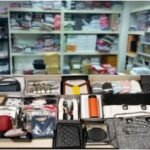Vietnam unhappy with Facebook’s lack of support for tackling fake goods

Vietnam is having difficulty preventing commercial fraud on Facebook, and has blamed the social media giant for not providing support in blocking accounts.
Nguyen Ky Minh, deputy chief of office of the Directorate of Market Surveillance, said on Thursday that when his agency discovers a Facebook account committing fraud such as selling counterfeit goods, it makes a request to Facebook to block the account, but this process is manual and takes a long time.
"It could be because Facebook has not grasped the severity of commercial fraud in Vietnam. Developed countries may have fewer fake goods than in developing countries. Facebook is imposing its policies globally, but they are not appropriate for Vietnam."
He urged the Ministry of Information and Communications to raise such issues strongly with Facebook and other social media companies so that they have a better understanding of the Vietnamese market.
Minh’s comments came amid increased incidence of fraud on social media, especially Facebook, in the first half of the year as demand for online shopping surged in light of people’s reluctance to shop in stores due to the Covid-19 outbreak.
Sellers of fake clothes, footwear and glasses often livestream their products on Facebook and pay to advertise the posts to reach a large audience.
Authorities in Lao Cai Province on the China border recently found 151,300 products without proof of origin in a giant warehouse used to livestream sales on Facebook.
Sellers there source products from China to sell online, and in the last two years have had revenues of over VND650 billion ($28 million).
Hanoi authorities have in the first six months taken action in 2,000 cases for selling fake goods worth a total of over VND40 billion ($1.7 million) online.
With 61 million Facebook accounts, or 79 percent of everyone in the country aged over 13, Vietnam ranks seventh globally, according to advertising firm We Are Social.
Facebook is the most popular social media platform in the country, followed by YouTube and homegrown Zalo, it said.
Join us to protect your brand !







